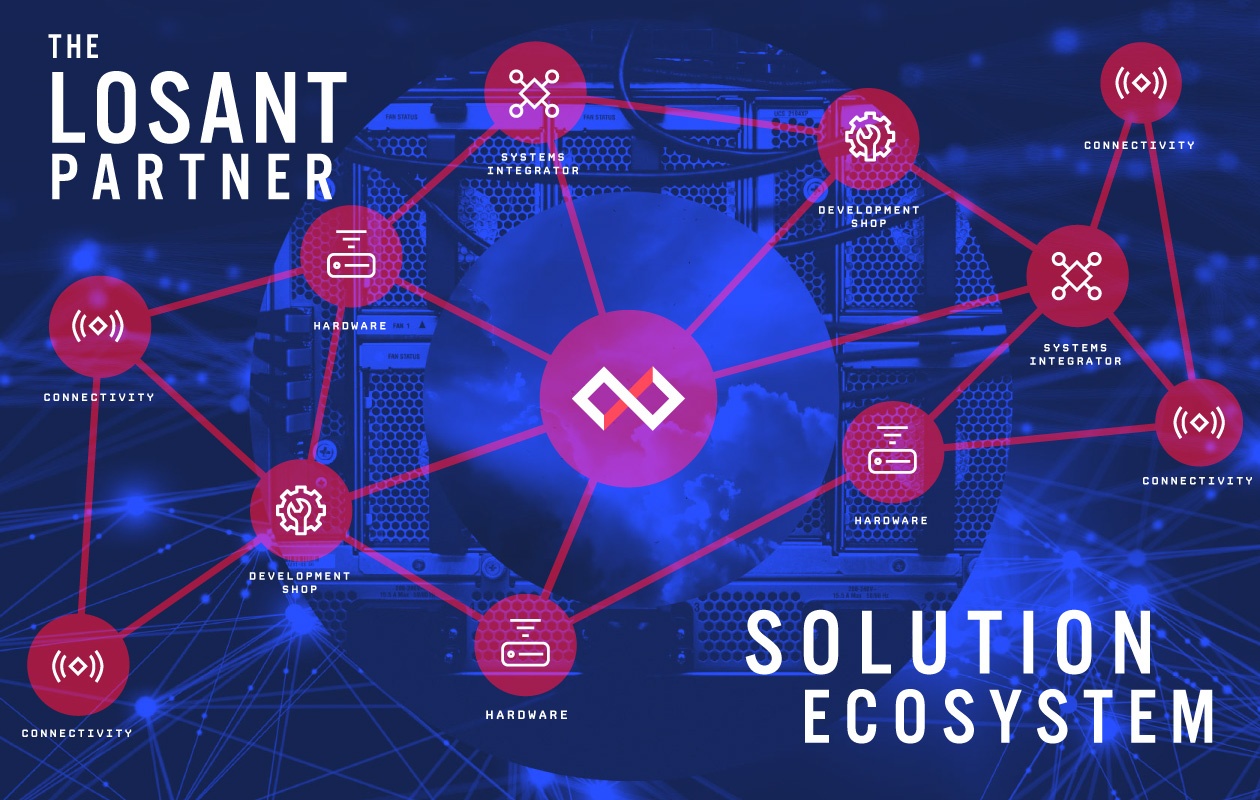The IoT ecosystem consists of many components and partners. Use these answers to navigate through some frequently used terms and understand the value of partnership in IoT.
IoT Partner Ecosystem FAQs
-
What is the IoT ecosystem?
The IoT ecosystem, also known as the IoT landscape, refers to the network of IoT suppliers (hardware, devices, software platforms, sensors, connectivity, software, systems integrators, data scientists, data analytics) whose combined services help individuals and enterprises create complete IoT solutions.
-
Are there any companies who can build a complete IoT solution under one roof?
An IoT solution requires the work of several partners, which is why the IoT partner ecosystem is very important. Even a simple IoT solution requires devices (things), connectivity, and a software platform to help users visualize the data that will be received. In many cases, these are provided by different vendors.
-
What is an IoT solution?
An IoT solution is a combination of devices or other data sources, outfitted with sensors and internet connected hardware to securely report information back to an IoT platform. This information is often a physical metric which can help users answer a question or solve a specific problem.
-
Which components are required for an IoT solution?
An IoT solution requires hardware (sensors, devices, gateways), network connectivity (Bluetooth, WiFi), and a software platform or user interface. IoT solutions may also require a systems integrator to combine the individual components.
-
What are some examples of connectivity options for IoT devices?
IoT devices outfitted with internet connected hardware can connect through Bluetooth, WiFi, LoRa, LPWAN, NB-IoT, CatM1, cellular, Zigbee or other networks.
-
Which environmental factors are monitored in a typical IoT solution?
Some examples of sensors that can be used for IoT include (but are not limited to) temperature, motion, distance, pressure, or vibration. Sensors must be outfitted with internet connected hardware to send data back to a user or organization.
-
What is an orchestration engine?
An orchestration engine is a term for a platform which enables the practice of creating, monitoring and managing multiple automated processes at once.
-
What is a dev shop?
A dev shop, or development shop, is a company of developers who accept software development projects from companies who have chosen to outsource the work.
-
When would I use a dev shop?
Enterprises of all sizes outsource development work to dev shops for software, websites or custom IoT applications. (We could also add to augment an internal team for project work or workload)
-
What is a systems integrator?
A systems integrator is an individual or a group committed to aligning new and existing systems to achieve a client’s desired computing needs. This usually includes establishing a way for disparate systems from various suppliers to communicate.
One example of when you would use a systems integrator is in a smart building solution. In order to gain efficiencies, information from the HVAC system would need to be connected to information from room monitoring sensors and the WiFi. A systems integrator can help an enterprise combine disparate devices and data sources from varying manufacturers and enables them to function together.
-
What is an IoT cloud platform?
An IoT platform provides users with key elements — visualization tools, data security features, a workflow engine and a custom user interface to utilize the information collected from devices and other data sources in the field. Cloud platforms can be accessed from anywhere.
-
How do I know when I need an edge gateway?
Edge gateways are required for edge devices, or devices that are processing data at or near where it is collected. An edge gateway is a router or the connector between external internet and an organization’s internal device network which makes it possible for edge devices to send communications to a central control station or cloud.
-
How do I select an IoT hardware partner?
Every IoT solution requires specific IoT hardware to collect and send information. Extreme conditions may require industrial-grade or custom hardware while simple solutions can use existing hardware from a supplier’s catalog. In order to collect and send information, the hardware must either be outfitted with a way to connect to the internet or it must retrofitted with a way to send its information to a gateway device.
-
Is it common to use more than one type of cloud platform?
Yes. IoT platforms have varying features for varying needs. In order to quickly scale or build applications with ease, IoT application enablement platforms with extended capabilities can be run on public cloud platforms e.g. AWS, Google Cloud.


